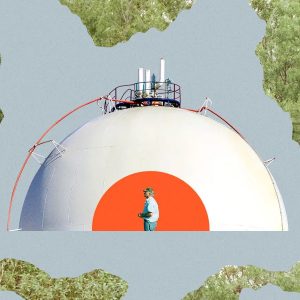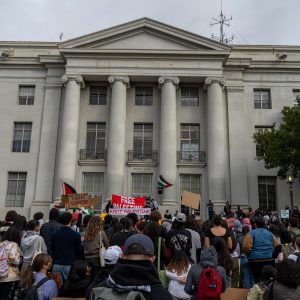A black suit, a crisp white shirt, a slim pair of sunglasses, and a cord curled behind an ear— in walks the stereotypical United States Secret Service (USSS) agent. Dedicated to protecting “Mr. President,” their mistakes often have dire consequences that ripple across the nation. The importance of their job is precisely what makes any slip-up cause for worry. Today, the USSS is confronting more than mere slip-ups. In the wake of prostitution and drinking scandals under her predecessor, Mark J. Sullivan, President Obama entrusted Julia Pierson to right the wrongs of the USSS. However, Julia Pierson handed in her resignation October 1, 2014, following two major security breaches during her eighteen-month stint as the first woman Director of the USSS. The current Acting Director Joseph Clancy could improve the way the Secret Service operates by revitalizing its organization, but the string of scandals has led both the public and the President to question the competency of this organization. If the Secret Service is unable to do its job providing protection for high-profile officials, should it be the organization trusted to protect the most important figures in the United States of America?
On September 19, 2014 Iraq War Veteran Omar Gonzales jumped the pointed wrought-iron fence enclosing the green lawn of the White House’s front yard. He ran across the grass, through the front door, into the East Room, and was finally tackled in the Green Room where teas and receptions are held. Gonzales reputedly “overpowered” the Secret Service agent guarding the door, though Gonzales was tackled with assistance from an off-duty agent. After being arrested and escorted off the premises, officials found a knife on his person, and 800 rounds of ammunition and two hatchets in his parked car. Perhaps one of these hatchets was the one USSS agents saw Gonzales carrying during their first encounter on August 25th as he sauntered along the south fence of the White House. A search of his vehicle apparently warranted no further action at that time, so he was released; only afterward did agents learn he had a criminal history. Still, Gonzales returned to the White House fence without reprimand to wreak havoc on the president’s sense of security.

Three days earlier, the Secret Service had allowed President Obama to ride in an elevator with an armed ex-convict during a trip to the Center for Disease Control (CDC). The man in the elevator had a criminal record of assault and battery; aggressive behavior certainly of concern to President Obama’s safety. The man in the elevator refused to stop videotaping Obama, behavior which warranted a body search of the harasser. When the search of the man produced a gun, the Secret Service knew it was in trouble. While the agency begun a dialogue on how to prevent this lapse in protection in the future, Director Pierson seemed more intent on concealing the breach rather than being forthright about the declining status of her agency. In an unavoidable brief about Omar Gonzales’ fence-jumping, she withheld the information that just days prior, the President’s life had been at even greater risk. The President ended up being told about the elevator incident only moments before the story was released to the press. Director Pierson’s failure to preemptively address this security issue reflects the overall mismanagement of the USSS that is completely unacceptable of an agency dedicated to the protection of the President.
Due to many factors, Barack Obama has been debatably one of the most at-risk presidents. Secret Service protection usually becomes available for presidential candidates 120 days prior to election, but Obama was given protection by the Secret Service as early as May of 2007, nine months before the Democratic Party even conducted its primary elections. This accelerated need for protection foreshadowed Obama’s first term in office, as he received on average thirty death threats per day—that’s 400% more than the 3,000 per year received by President George W. Bush while in office—requiring the Secret Service to expand its protection of the President without increasing its resources. Threats may be less frequent in his second term, but that does not permit the lackadaisical culture fostered by the Secret Service. If anything, the Secret Service scandals that occurred in the later years of Obama’s presidency should have encouraged the agency to reevaluate its performance.
President Obama seems to be the victim of drastically more security breaches, from party crashers who successfully passed two checkpoints in 2009 to gunshot damage to the White House left unnoticed for four days in 2011. After 16 separate attempts to scale the White House fence in the past 5 years, one would think that the Secret Service would do more than sit idly by. They mused over ideas such as adding barbed wire to the fence or implementing security screenings on Pennsylvania Avenue, yet no proactive measures were actually taken. While the public is largely familiar with the assassinations Abraham Lincoln and John F. Kennedy, the Secret Service has proven itself capable of handling security breaches in past decades. In the more recent past, for example, President Clinton was fired upon while watching football, and President George W. Bush was exercising when a man fired shots at the White House from outside the gates. However, those cases were quickly handled: a passerby immediately tackled the former individual and the latter was shot in the knee by the Secret Service.
The USSS was relocated from the Department of the Treasury to the large, new Department of Homeland Security in 2002. The organization went from being a big fish in a small pond to just one of 22 agencies and departments competing for the Department of Homeland Security (DoH) budget. Its 6,500 employees cower in comparison to the FBI’s 40,000 members and the CIA’s 21,000 just like its budget, a mere $1.5 billion. Three percent of the DoH’s $59.9 billion budget for 2014 is allotted to the USSS, a fraction of what is received by the other agencies. In order for the Secret Service to accommodate increased threats against President Obama, or to even operate successfully, a serious organizational reform is necessary. If that isn’t possible, then its responsibilities could be transferred to the FBI with an annual budget of approximately $8.2 billion.
As the House Oversight Committee begins investigating the severe decline in the USSS, one cannot help but wonder if the agency can rebound from such degeneration—or if it even should. In the 1960s, President Lyndon B. Johnson said of the Secret Service, “if they don’t want to handle it, we’ll get the FBI to do it [presidential safety]…I could be handled a lot better anyway”. Though LBJ eventually got on good terms with the Secret Service, his statement echoed FBI Director J. Edgar Hoover’s opinion that the FBI could do a better job at protecting the president than the USSS. Presumably, Obama would rather be “handled” better after his ordeals with the Secret Service. Perhaps LBJ’s statement should be revisited after reevaluating the Secret Service’s ability to do its job and protect the president.
There would be other advantages of transferring the Secret Service’s responsibilities to another entity. While the Director of the Secret Service does not require Senate confirmation, the Director of the FBI does. Julia Pierson was “considered a weak candidate among rank-and-file agents because she had spent relatively little time supervising or working high-priority protective details, spending most of her career in administrative jobs” and reportedly not the President’s first choice. That the President possibly settled on a “weak candidate” because no one else was willing or able to take the director position points to an overall decline in the capability of this agency. Former Secret Service members have been known to take advantage of their training to snag high-paying police department jobs, leading to a lack of incumbency within the Secret Service. The USSS may boast its high standards for agents, referencing a ten-week Federal Law Enforcement Training Center’s Basic Criminal Investigator Training program and a seventeen-week Special Agent Basic Training, yet it still does not require a bachelor’s degree. The FBI requires a bachelor’s degree and attendance at the FBI National Academy before allowing people into its work force.
If the Secret Service’s record for the past five years is any indication of the competency of the organization, President Obama and Congress should be calling for significant reform. Considerations of moving the Secret Service to another department hold merit, as this decline of the USSS could be attributed in part to its move to the Department of Homeland Security. Protecting the integrity of the agency should come second to the President’s safety, even if that means reallocating presidential protection responsibilities to another agency such as the FBI. It is time to ensure that the safety of United States officials is “handled much better” by those capable of executing their jobs.





Be First to Comment